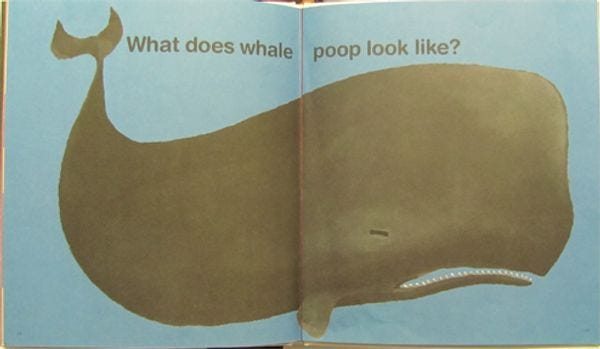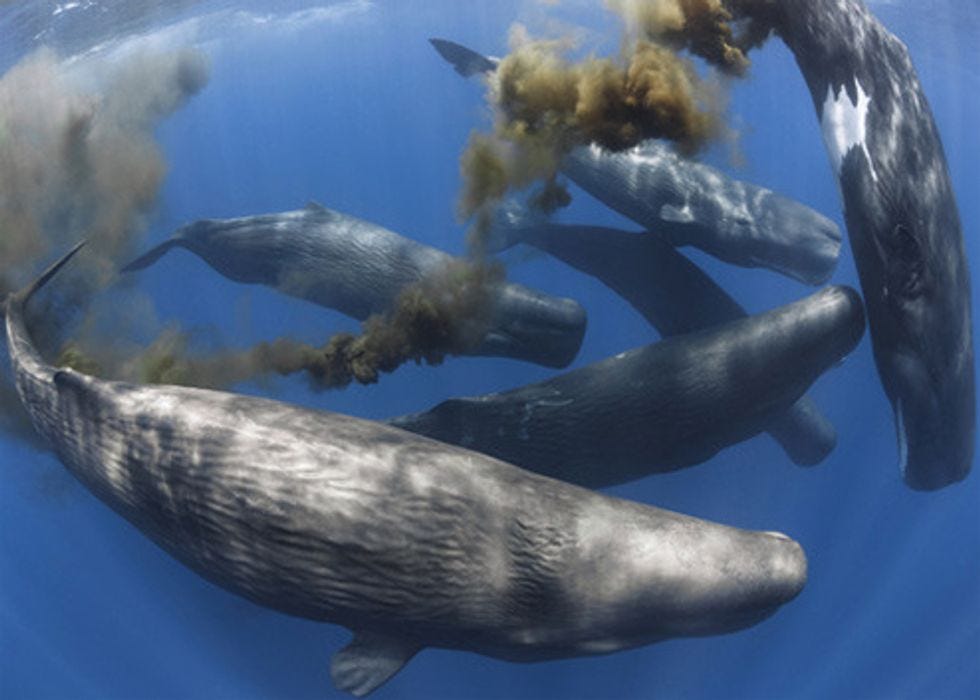Excellent News! Whale Poop Could Save Us All From Global Warming, Maybe
Everyone knows how prophetic the popular "The Star Track" television show was: Nowadays you got your "communicators" -- cell phones -- and your "PADDs" -- tablet computers -- and your "Ferengis" -- the Koch Brothers. In yet another instance of Star Trek getting The Future absolutely right, it turns out that whales may actually save the Earth, which was the plot of Star Trek IV: The One Before Some Idiot Let Shatner Direct. Only it's not because they can communicate with V'Ger, it's because a restoration of whales to their former population levels would mean a whole lot of whale poop. And all that whale poop could help offset humanity's successful efforts to crap on the entire planet.
What weird greenie wizardry is this, anyway? According to new research from the University of Vermont, it all comes down to phytoplankton, which feed on, among other things, whale doots, and are terrifically efficient at absorbing carbon from the atmosphere, and are also the base of the oceanic food chain. More whales, more poop, more phytoplankton, healthier oceans, and more absorption of all the CO2 we've been pumping into the atmosphere. And while we're at it, since whale carcasses are ecosystems in their own right, feeding bajillions of organisms that other fish also feed on, a recovery of whale populations would also help recovery of fishies what humans like to eat. Or to get all sciencey about it, U of Vermont conservation biologist Joe Roman, the lead researcher on the paper, explains that whales were once thought to be too few to affect the ocean biosphere much, but actually,
"The decline in great whale numbers, estimated to be at least 66% and perhaps as high as 90%, has likely altered the structure and function of the oceans, but recovery is possible and in many cases is already underway."
Among other cool functions of whale poop, says Roman,
"whales recycle nutrients and enhance primary productivity in areas where they feed." They do this by feeding at depth and releasing fecal plumes near the surface -- which supports plankton growth -- a remarkable process described as a "whale pump." Whales also move nutrients thousands of miles from productive feeding areas at high latitudes to calving areas at lower latitudes.
Fecal pump. There's your new band name.
And what difference would more whales make to the climate? According to science writer Greg Gatenby, interviewed by the Guardian,
“about 300,000 blue whales were taken in the 20th century. If you average each whale at 100 tons, that makes for the removal from the ocean of approximately 30m tons of biomass. And that’s just for one species”.
And all those whales would pump a lot of nutrient-rich poo into the oceans: bring on the phytoplankton and all the critters that would eat them.
More good cetacean news: Whale populations are rebounding now that whale hunting is largely banned. May they poop prodigiously.
[ ScienceDaily via The Guardian & RawStory / Image credit: Tony Wu, University of Vermont]
Follow Doktor Zoom on Twitter. Considering that Frank Luntz pushed "climate change" because people found it less troubling, he's just going with "global warming."





Seriously. Call me.
<i>~ Ishmael</i>
I can show you the right whale in exchange for a humpback.